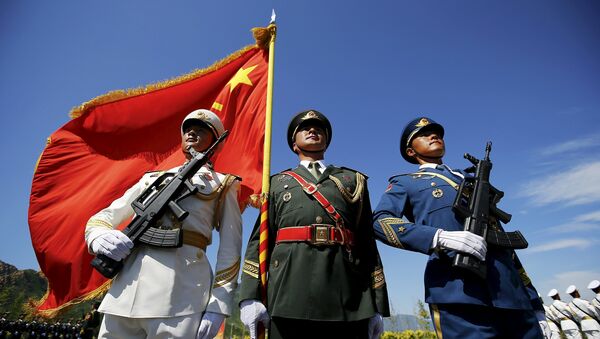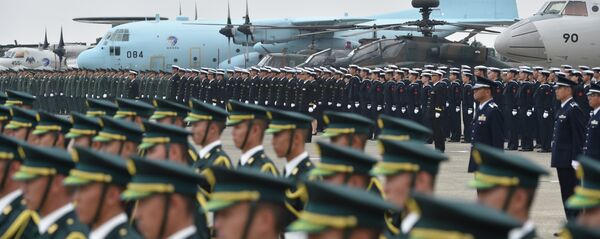According to Chairman of the Rebuild Japan Initiative Foundation Yoichi Funabashi, although Washington has identified the Asia-Pacific region as pivotal and even developed a "rebalancing" strategy for the region, it seems that the US' foreign policy course remains just wishful thinking.
"What the United States lacks but most urgently needs is a new Asia-Pacific dream to counter Beijing's "China dream"," Yoichi Funabashi stressed in his article for the National Interest.
"The great drama of the twenty-first century will be the trajectory of China's rise. The challenge posed by China is twofold. An ascendant China is a rival to US power and a potential threat to the post-World War II liberal international order, of which China has been a beneficiary," Funabashi warned.
According to the scholar, this coalition will assist Washington in shaping the regional architecture and bolstering the US leadership positions.
"Despite China's newly realized status as the greatest potential contender to American power, a Cold War policy of containment is no longer viable," the Japanese scholar noted, adding that nevertheless "the concept of the Indo-Pacific" should become a crucial counterweight against China in the region.
It should come as no surprise that the Japanese scholar is beating the drums over China's "challenge." The roots of the Sino-Japanese rivalry run deep into history and since modern Japan is unable to compete with China, Tokyo is urging the United States to take its side.
"America must pursue 'quiet deterrence' to ensure the future stability of the international system," the scholar insisted.
It is worth mentioning that Japanese Prime Minister Shinzo Abe refused to attend the 70th anniversary of the end of the Second World War in China in the beginning of September. Japan is responsible for China's massive casualties — more than 20 million deaths — during the Second World War.
Abe's refusal to commemorate the victims of the Second World War in China only added fuel to the fire, aggravating further tensions between the two longstanding regional rivals.
Furthermore, Abe's security bill has recently met heavy criticism from the Japanese. The legislation would allow the deployment of Japan's Self-Defense Forces for distant overseas operations. Abe's initiative prompts fears that Japan risks being dragged into a military conflict in the region.




